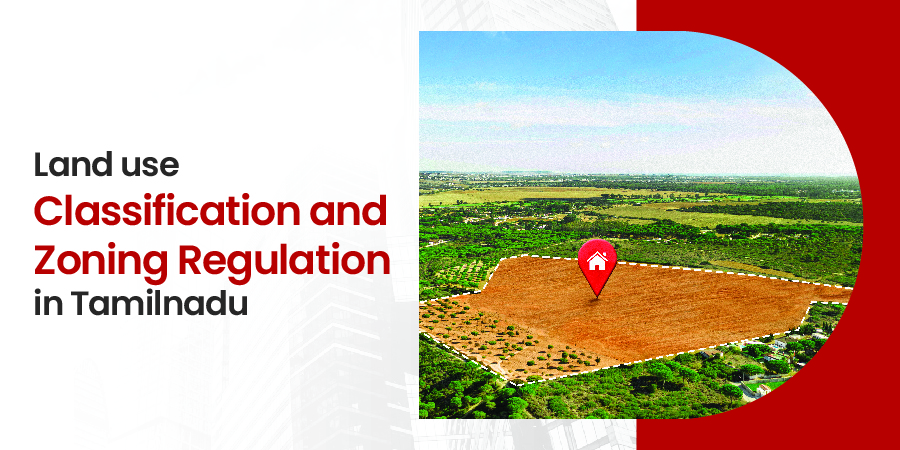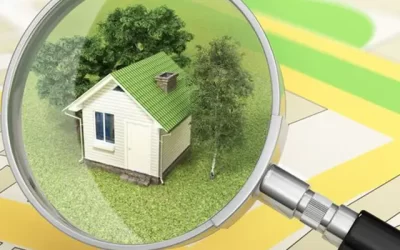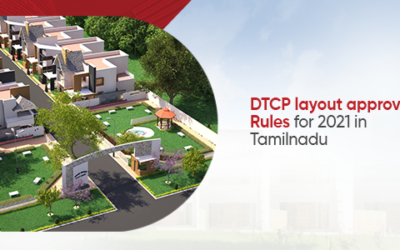Land use classification and zoning regulation in Tamilnadu
Introduction
A land use classification provides information on land cover and the types of human activity involved in land use. It may also facilitate the assessment of environmental impacts on, and potential or alternative benefits of, land.
Knowing the land use classification before buying the land that suits the purpose envisaged is essential. A mismatch in classification and purpose can result in a significant increase in money, time, and efforts to obtain the necessary re-classification.
Land use/zoning is a form of urban planning in which a municipality or other level of a government divides land into areas called zones, under which specific land uses are allowed or prohibited. Zoning is done to encourage proper land use for different purposes. In practice, land use classification is done to prevent future divergent uses from current land uses and to preserve the “essence” of a community. It is a tool used by local councils to regulate the development and usage of real estate in a particular area. Zoning regulation controls how much growth will take place and plan land use in such a way as to make it financially, geologically, and physiologically purposeful.
Types of zoning/land use
- Residential use zone
- Commercial use zone
- Industrial use zone
- Special and Hazardous use zone
- Institutional use zone
- Agricultural use zone
- Open Space and Recreational use zone
- Urbanisable use zone
Let us look at what comes under each of these heads:
Residential Zoning
It is a zone with single-unit or multi-family dwellings. Commercial establishments may or may not be situated within these neighbourhoods.
A residential area can include temporary accommodation, such as motels, service apartments, old age homes, Hostels, Restaurants, and hotels. And the residential areas with restricted commercial buildings such as Cinema Theatres, departmental stores, shops for daily necessities of the residents, Bakeries, Laundries, and hairdressing saloons with a floor area not exceeding 500 sq.m. A Residential zone covers Health care facilities such as hospitals, nursing homes, and similar establishments and Institutional buildings such as Nursery schools, Primary Schools, High Schools, Higher Secondary Schools, Libraries, and reading rooms.
It also covers financial institutions, Govt./Semi Govt. Offices, Professional consulting offices, Public Utility Buildings, Transport depots, and Daily or weekly markets serving local needs.
Industries listed by the Tamilnadu Pollution Control Board as ‘Green’ subject to the maximum installation of 30 H.P. and Cottage Industries with the number of workers not exceeding eight and electric machinery not exceeding 5 H.P. are also allowed in the Residential zone.
Commercial Zoning
In Commercial Zone, all activities are permissible in the Residential Zone without restricting floor area (except industries). It comprises Office Buildings, Shopping malls, Nightclubs, Hotels, and warehouses. Education Institutions such as Colleges, higher education, and research institutions do not involve the danger of fire.
It also covers Air-conditioned Cinema Theatres, Kalyana Mandapams, and Multiplex with specific min road width. Fuel filling stations, automobile service stations Broadcasting, telecasting and telecommunication stations, I.T. Parks, and computer hardware industries are also permissible in the Commercial zone.
Industries listed by the Tamil Nadu Pollution Control Board as “Orange” subject to a maximum installation of 50 H.P. are also allowed in the Commercial zone.
The accessibility of parking can affect the type of commercial area permitted. In addition, there could be regulations on the proximity of some kinds of enterprises to others. Many zoning regulations prohibit or restrict adult entertainment facilities to a particular geographical area. Certain activities are not permitted over a certain distance from established schools or religious centers.
Industrial Zoning
Industrial zoning is also widely used in areas containing factories, although this land is mostly for processing or manufacturing purposes. Some typical buildings in industrially-zoned areas include storage facilities, Container terminals, and even airports. All industries (without restrictions of H.P. or floor area or the number of workers) are allowed except those industries listed under the Red category, such as industries of obnoxious and hazardous nature by reasons of odor, affluent, dust, smoke, gas, vibration or otherwise likely to cause danger or nuisance to public health or amenity. All use is permissible in Residential and commercial use zones.
Special and Hazardous Industrial use zone
All industrial activities permitted in the industrial zone, including red category industries classified by the TNPC Board, will be allowed in this zone.
Adequate precautions shall be taken to prevent and dispose of harmful or hazardous wastes and to minimize the risk to human life or health or the facility with the approval of the TNPC Board.
Institutional use zone
It comprises all educational, research, and training Institutions, public health and medical institutions, government and semi-government institutions, Social and Cultural Institutions, and Professional and business offices.
It also includes recreational and entertainment uses such as Parks, Play fields, Swimming pools, zoological and botanical gardens, museums and memorials, Theme parks and amusement parks, Cinema theatres, Open Air Theatre, Exhibitions, Circuses, clubs, and sports stadiums.
Agricultural Zoning
Agricultural zoning is mostly about preserving a parcel of land from non-farm use. Agri zoning has many considerations, such as the suitable property size, the number of non-farm dwellings permitted, and the users and activities allowed. All the uses permissible in the residential use zone within the Natham boundaries (settlements) are allowed in the agricultural zone. It also covers cattle farms, poultry farms, and storing fertilizers, Mills for grinding hulling, etc. of cereals, pulses, food grains and oil seeds, garbage dumping sites, Burning and Burial grounds, Crematoria and Cemeteries.
The agricultural zone is not that simple as the laws in its principle are strictly enforced to protect it. Agri zone is created to preserve agricultural land from non-farm activities, and the local authority makes laws for it.
Open Space and Recreational use zone (only in Chennai Metropolitan Area(CMA))
It covers all public and semi-public recreational uses and open spaces, parks, and playgrounds, zoological and botanical gardens, museums and memorials, Theme parks and amusement parks, Open Air Theatre, Exhibitions, Circuses, Burial and burning grounds or crematoria.
And, also Hotels and restaurants not exceeding 300 sq.m, Beach cottages each not exceeding 100 sq.m. in floor area and 7.5 m in height.
Urbanisable and Non-Urban use zone (only in CMA)
All uses are permissible in commercial and institutional use zone. All industries with installations not exceeding 200H.P allowable in the Industrial use zone.
Non-Urban use zone(only in CMA):- All Agriculture uses, Burning, Burial grounds, crematoria and cemeteries, Salt pans and salt manufacturing, Brick, earthen tile, or pottery manufacturing. Stone crushing and quarrying. Sand, clay, and gravel quarrying.
Can zoning be changed?
Yes, we can change the zoning in certain situations. If the zoning on a plot of land conflicts with the usage desired by the land owner, the landlord can request a change of zoning from the local jurisdiction. Every province has laws and regulations of its own. Usually, there is a request and a charge, followed by an inquiry at which the applicant discusses the request and the reasons for the change requested. To help with the rezoning process, many owners employ engineers or attorneys.
Conclusion
Zoning is essential for sustaining the development of a country. Regularised zoning in any city contributes to proper planning. It can be used o shape the future of a town or municipality through the development of unique facilities or the best use of the land. Zoning is the first step to the project assessment of any construction or development. Although the zoning rules differ widely from region to region, they aim to distinguish the residential property from commercial properties. Thus becomes imperative to understand the zoning rights attached to the land.
FAQ
What is a Master Plan area in DTCP?
Mater Plan areas are those in Tamil Nadu other than CMDA areas wherein the Department of Town and Country Planning has prepared a Master Plan, which the Government duly approves.
Simply a Plan area is the one wherein Master Plan for the entire area with zonation (namely: Residential, Commercial, Educational, Public and Semi-Public, Industrial, and Agricultural) has been done by the DTCP department. Any development in these areas should conform to the zoning, and in case of development is not conforming to zoning, re-classification will have to be obtained from the Government.
What is a Non-Plan area in DTCP?
Non-Plan areas are those areas other than plan areas within the jurisdiction of DTCP which do not have an approved master plan.
In Non-Plan areas, we must obtain the Directorate’s technical sanction. The Agricultural Department’s NOC is a prerequisite if the development is on dry land.
Is Planning Permission required in Non-Plan areas?
Yes. Under Sec.47 (A) of the Town and Country Planning Act 1971, Planning permission is required in both plan and non-plan areas.
In the Non-Plan area, re-classification/Change of Land use is not needed to get the planning permission. All we need is for the proposed land to be classified as Dry Agri land as per the PATTA. And we can apply for any Building Plan approvals at DTCP with agricultural -NOC stating that the land is not potential for Agricultural use anymore.
Can we build a farmhouse on agricultural land?
Yes, We can build any development activities in the Non-Plan area. But in the planned area, the land needs to be re-classified if the intention is to use the property for commercial purposes in.
Can we get DTCP approval/ Planning permission for Industrial buildings on Residential Land?
No, We can’t get DTCP approval for Industrial Building in a Residential zone directly. At first, we need to re-classify Residential Land into INDUSTRIAL use; once it is done, we can get planning permission for Industrial buildings over there. But this process takes twice as much time and money as compared to obtaining an allowed building plan approval in the same zone. That’s why verifying land use classification is most important before starting any project.
How would one obtain Re-classification of land use? And What are the Documents to be submitted for re-classification?
The person who wants to convert their land will have to submit Re-classification forms (duly filled) along with the required documents listed below to the concerned Local Body or Local Planning Authority/ New Town Development Authority; after due scrutiny, the same would be forwarded to Government for orders by the Directorate.
List of Documents required for re-classification,
- Notary Public attested copy of a document (sale deed/ lease deed/ power of attorney)
- Encumbrance Certificate for 13 years
- Site Plan
- Topo Plan(500m)
- Chitta, Adangal, Patta/ A.Register, TSLR
Can industries build on Agri Land?
Yes, but it is based on the scenario. For example
If the land is dry Agri land and falls under Master Plans or Detailed Development plan (D.D. Plan) areas, First we need to re-classify it from the present use to industrial use, and then Industrial Building Plan approval can be done.
Suppose if the land is dry Agri land and falls under the Non-Plan area, we can directly apply for an Industrial Building Plan approval at concern DTCP with NOC from the agricultural department stating that this land is not suited for agricultural use anymore.
For wet Agri land, if the land falls under plan or non-plan area, we can’t be able to get convert or get planning permission for Industrial buildings or any.



